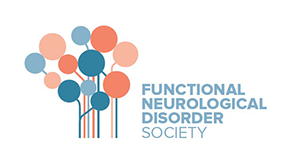My name is Kristina Bentle, and I live with FND. This blog is my way of sharing what I want people to understand about this condition.
Functional Neurological Disorder (FND) is a challenging condition for Western Medicine, leading to many people suffering needlessly while trying to find answers. The difficulty arises from Western medicine’s diagnostic approach and its history of understanding complex conditions like FND.
The issue doesn’t lie with the disorder itself; rather, it lies within the medical system’s systemic challenges.
First and foremost, if you or a loved one have struggled with Functional Neurological Disorder (FND), I extend a heartfelt apology on behalf of any doctors or medical professionals who may have dismissed your concerns in the past.
The symptoms of FND are undeniably real, profoundly impactful in daily life, and can be incredibly distressing and confusing. Contrary to what you may know right now, research does provide a better understanding of FND mechanisms; it just isn’t widely known yet.
In this blog, I share my personal journey with FND and my mission to change how we approach and support those affected. I find it appalling to see so many patients not receiving the right treatment because of inadequate knowledge, compounded by outdated and misinformed online information. I want to offer you some hope, guidance, and information to help empower you if you’re on a healing journey with FND.
Jump to the section you want to explore on FND:
- What is Functional Neurological Disorder (FND)?
- My Experience with Functional Neurological Disorder (FND)
- The Misunderstanding of Functional Neurological Disorder (FND)
- Functional vs. Structural: Understanding the Difference
- Studies on Functional Neurological Disorder (FND)
- FND and the Limbic System
- FND and Immune Response
- FND and Brain Structure
- Changing how we understand Functional Neurological Disorder (FND)
- Treatment for Functional Neurological Disorder (FND)
- FND and Trauma
- Hope for Functional Neurological Disorder (FND)
What is Functional Neurological Disorder (FND)?
If you google this question, you will get multiple answers. So, I want to break it down and give you the truth.

FND involves functional issues instead of structural abnormalities. A functional issue refers to a problem or difficulty that affects how something works or operates without a physical or structural abnormality causing it.
In the context of functional neurological disorder (FND), it means that the symptoms someone experiences, like weakness, tremors, or sensory disturbances, are not caused by a clear physical injury or damage to the nervous system.
Herein lies the problem. If you have a broken arm, you get an X-ray to see the broken bone. If you have an infection, run a blood test to check for the presence of bacteria or viruses. We don’t have any diagnostic tests this clear for FND.
Western diagnostic techniques rely on tangible evidence and have become the gold standard in medical practice. However, this reliance on black-and-white test results can leave many feeling invisible.
What happens when a medical condition doesn’t neatly fit into these established diagnostic molds (yet)?
Medical issues fall through the cracks of a system that doesn’t yet understand how to help. For many of us, this diagnostic process can lead to medical gaslighting.
Medical Gaslighting
Medical gaslighting happens when healthcare providers downplay or dismiss a person’s symptoms, leaving you without proper diagnosis or treatment. Imagine experiencing symptoms that significantly disrupt your daily life, yet every test comes back “normal.” This means the doctors send you home without any treatment.
This frustration is a reality for many people struggling with FND because there are no diagnostic measurements that clearly show up in standardized tests.
This lack of validation can be emotionally distressing, leaving you feeling unheard and invalidated in your lived experiences. This can exacerbate your symptoms, and it can also delay crucial interventions and appropriate care, leading to prolonged suffering and worsening health outcomes.
So, I’m speaking up.
My Experience with Functional Neurological Disorder (FND)
In 2021, I was diagnosed with FND, which left me bedridden and unable to walk, shower, or take care of myself. I was 38 years old at the time. However, a lot has changed since then. Though I’m still working on achieving financial independence, I’ve regained much of my physical independence that was taken by FND.
At first, I hated the diagnosis. I felt ashamed due to the stigma, which painted FND as a purely psychological issue. FND has long been tied to conversion disorder, a psychiatric label that is defined as having no “known underlying cause.” That description feels absurdly dismissive and undermines the very real pain of living with this condition.
My entire existence felt consumed by a disorder many dismissed as inconsequential or even fake.
When you mention having Multiple Sclerosis or Parkinson’s disease, most people understand the seriousness of these conditions (which share symptoms with FND). However, when you mention having Functional Neurological Disorder (FND), it’s a different story. Many people have no idea what it is, and explaining it often leads to them thinking you’re crazy.
So, for me, healing was a painful and isolated journey.
I’m on a mission to change that because those with FND need more support, understanding, and viable treatment options.
Today, I am now happier than I ever thought possible. As part of my own healing journey, I began studying the body and brain to better understand what was happening to me. Currently, I am pursuing a degree in Neuroscience and Trauma so I can help others find their own path to healing. I aim to bring more clarity and understanding to this condition and help cut down on misinformation.
This blog is a summary of what I’ve learned about FND and what I want more people to know about healing.
The Misunderstanding of Functional Neurological Disorder (FND)
Let’s start by breaking down this diagnosis. Functional Neurological Disorder — is a newer and broader term that includes what some people call conversion disorder. Many still classify FND as a psychiatric condition, yet studies unequivocally demonstrate that FND can occur in individuals with no prior history of psychiatric disorders.
This is the first sign (to me) that something is deeply amiss about diagnosing and understanding this condition in medical communities; more on this later.

Functional Neurological Disorder features symptoms of the nervous system (neurological) that can’t be explained by a neurological disease or other medical condition (that we can measure at this time).
However, the symptoms are real and cause significant distress or problems functioning.
Unfortunately, FND and conversion disorder are listed as the same illness in the APA diagnostic manual, the DSM-5, and both are typically used interchangeably. (Yet again, studies show that FND can occur without a history of psychiatric disorder. Are you starting to see the problems already here? Wait, there’s more).
Conversion Disorder is a psychiatric condition that causes physical symptoms to manifest psychological conflicts. Conversion Disorder has long been associated with malingering (aka faking).
Unfortunately, this means that FND is still being lumped into sections of medicine that are actually working against understanding and treating it properly.
The term “Conversion Disorder” carries a stigma of disbelief in the medical community, leading to misconceptions that patients are exaggerating or inventing symptoms. This has hindered genuine understanding and empathy for those suffering from Functional Neurological Disorder (FND).
Functional vs. Structural: Understanding the Difference
Functional Neurological Disorder (FND) involves functional issues instead of structural abnormalities. This is a big reason why the medical community struggles with this diagnosis.
Let me break it down:
Imagine two cars that won’t start up properly.
One car has a crack in the engine block; you can visually see the damage and determine the problem causing the vehicle not to start. The second car looks perfectly fine on the outside, with all its parts intact and no visible damage. So you decide to have a mechanic run a diagnostic scan, and that’s when you find a shortage in the electrical system.
Does this mean that car #2 is faking? No.
Does it mean that car #1 is more valid? No.
It means that the diagnosis for car #2 is more complex and requires different diagnostic tools.
Too often, functional issues are dismissed by doctors because they don’t show up on standardized tests. Yet, it’s no less real than a diagnosis that shows up on traditional tests. Just like car #2, the issues are real, but they require a deeper understanding and specialized tools to uncover.

Functional Neurological Disorder (FND) is challenging to diagnose when relying on standardized tests, which are designed to detect structural abnormalities or specific organic causes.
It’s essentially like a mechanic working on a broken-down car and staring at a perfectly intact engine block, saying, “It’s fine.”
Then the mechanic sends you home with a car that won’t start saying, “All tests are fine.” In reality, the mechanic overlooked the underlying electrical issue or did not have the proper test tool. This scenario is happening to people with FND every single day as doctors dismiss patients time and again.
Currently, diagnosing Functional Neurological Disorder (FND) heavily depends on clinical observations, symptom patterns, and patient history. Other testing, like fMRI, could potentially lead to a more decisive diagnosis, but it’s very expensive.
This means FND diagnosis is currently subjective and influenced by the doctor’s biases. This situation raises a significant concern: What happens if the doctor treating you doesn’t recognize FND as a legitimate diagnosis? It results in many cases of FND being misdiagnosed or, worse, ignored and dismissed.
The reality is that FND can be just as debilitating as can be as debilitating as Parkinson’s disease and Multiple Sclerosis and have many similar symptoms. Yet, due to the misunderstanding of FND’s role in modern medicine, many struggle alone, afraid, and dismissed by modern medicine.
Sometimes, a person may exhibit symptoms such as tremors, seizures, or paralysis without any identifiable neurological damage or disease. The absence of visible structural changes can lead to doubt and skepticism in medical providers who don’t understand it. Plus, it can even cause the condition to be dismissed as a psychosomatic disorder.
So, if your car mechanic doesn’t use the right tools to diagnose your car, does it mean the problem isn’t real?
No. Yet, that doesn’t make you feel much better when you can’t find help.
Studies on Functional Neurological Disorder (FND)
Recent studies are shedding light on the complex relationship between the nervous system, emotions, hormones, and brain structure in Functional Neurological Disorder (FND). Sadly, these studies aren’t getting enough attention. It took me working on my Master’s thesis to find them, and it highlights a very real problem. It often takes a long time for research to be implemented into practice.
My intention is to share these studies to help people feel more validated in their experiences and to emphasize how real this issue is. It’s important to remember that the fact that some doctors may not understand FND does not diminish its validity.
FND and the Limbic System
In 2019, Cambridge University published a study that sheds light on the brain’s microstructure and its connection to Functional Neurological Disorder (FND). The study highlights the limbic system as a key focal point in understanding FND. The limbic system is a group of brain structures that help regulate emotions and behavior.
In people with FND, evidence of altered integrity (changes) within the limbic system shows a disruption in the intricate network that controls emotional responses and behavioral patterns. In short, the changes affect how emotions are processed, and behaviors are regulated.
This alteration not only underscores the complexity of FND but also indicates a profound connection between nervous system regulation and the manifestation of FND symptoms.
The findings are profound and point towards a probable connection where nervous system dysregulation could contribute to or worsen the physical symptoms experienced in FND. This relationship between the nervous system and bodily experiences sheds light on the essence of FND.
It also demonstrates why there is a massive need for more holistic approaches to FND that address both the emotional and physiological aspects of the disorder.
FND and Immune Response
In another study published in 2023 by Frontiers in Neurology, researchers have uncovered a potential link between immune responses and neurological dysfunctions in FND. Specifically, they have identified antibodies that target ganglionic acetylcholine receptors.
These receptors are crucial in transmitting signals within the autonomic nervous system, which regulates involuntary bodily functions like heart rate and digestion. The presence of these antibodies suggests a complex interplay between immune responses and neurological dysfunctions observed in FND.
We know that the nervous system heavily impacts the immune response. Hence, another possible pattern emerges of the nervous system’s impact on FND.
More notably, these antibodies could potentially serve as biomarkers, leading to more accurate diagnosis and tailored treatment strategies. Biomarkers are a diagnostic tool that fits nicely into modern medicine’s standards of diagnosis.
FND and Brain Structure
A recent study published in the Journal of Neurology, Neurosurgery & Psychiatry has revealed specific changes in corticolimbic structures. These structures are responsible for processing emotions and regulating responses. This study suggests that these alterations in the brain may directly impact Functional Neurological Disorder (FND) symptoms.
These findings are significant because they unravel how brain structure influences emotional well-being and overall health in individuals with FND. By understanding these corticolimbic alterations, researchers gain insights into potential avenues for targeted interventions.
Overall, this study truly highlights the importance of understanding the intricate relationship between brain structure, emotions, and overall well-being.
Changing how we understand Functional Neurological Disorder (FND)
Research on Functional Neurological Disorder (FND) shows that this disorder results from changes in brain functions influenced by various factors such as biochemical processes, immune responses, genetic expressions, and neurological dysfunctions.
This comprehensive understanding highlights the importance of integrated approaches that address both the neurobiological and psychosocial aspects of FND. This approach opens up the possibility of more targeted and effective diagnostic and therapeutic strategies.
Treatment for Functional Neurological Disorder (FND)
My personal and professional hypothesis is that FND is caused by dysfunction in the nervous system that creates a ripple effect of changes in the brain and body. I believe that if we can focus on restoring the nervous system, then we can alleviate symptoms of FND.
In truth, I believe FND highlights the critical need for holistic healing. Here are some questions that I think are key to exploring when healing from FND?
- How can I better balance my hormones?
- How is stress impacting my body?
- How can I regulate my nervous system more?
- Am I missing any key nutrients in my diet that impact brain health?
- Am I missing any key nutrients that impact my nervous system health?
From my research and personal experience, I anticipate that future research will reveal a predisposition to neural-altered integrity in the brain’s white matter, likely triggered by chemical imbalances within the nervous system. I believe healing needs to focus on rebalancing our systems to give the body space and the ability to heal properly.
FND and Trauma
It is important to understand that while many people diagnosed with FND (Functional Neurological Disorder) may not have a past history of psychological problems, some will. I have saved this point for the end because the negative connotation of being associated with psychological problems can sometimes detract from the overall comprehension of FND and its complexities.
FND can develop in people with or without a background of psychological trauma, and I believe this is due to the nervous system’s fundamental role in the condition.
Trauma has a profound impact on the nervous system, influencing how the body and brain function on a deep, biological level.
Neurobiological Changes: Trauma disrupts the body’s stress response systems, such as the hypothalamic-pituitary-adrenal (HPA) axis and the autonomic nervous system.
This disruption leads to hormonal imbalances, alterations in neurotransmitter levels, and changes in brain structure and function. Over time, I suspect these imbalances can contribute to the development of conditions like FND.
Altered Neural Processing: Trauma also affects how the brain perceives and processes sensory information. The nervous system becomes hypersensitive, leading to heightened reactivity to stimuli and difficulty regulating emotions and behaviors.
This can manifest in the physical and emotional symptoms often seen in FND, as the brain struggles to properly interpret and manage bodily sensations.
Maladaptive Coping Mechanisms: In response to trauma, some individuals develop coping mechanisms like dissociation or hyperarousal. These responses, while protective in the short term, can become entrenched and contribute to the emergence of FND symptoms. The brain and body essentially adapt to dysfunction, perpetuating a cycle of physical and emotional distress.
All of this leads to radical changes in the brain and body. Over time, the nervous system adapts to this dysfunction, often resulting in a cascade of health issues. Understanding this connection between trauma and FND is key to developing a more compassionate and effective approach to treatment.
By addressing both the neurological and emotional aspects of the disorder, we can begin to offer more comprehensive support to those living with FND.
Hope for Functional Neurological Disorder (FND)
If you’re navigating life with Functional Neurological Disorder (FND) and experiencing feelings of isolation, fear, and neglect, it’s important to know that you’re not alone. Living with FND can indeed be daunting and overwhelming.
This blog aims to shed light on the challenges of FND, emphasizing the need for a comprehensive and trauma-informed approach to understanding and addressing this complex condition.
I hope that I can empower you to take ownership of your healing journey, even if doctors have brushed you aside. I truly believe by recognizing the connection between physical symptoms and emotional factors, people with FND can embark on a journey toward more effective healing.
Functional Neurological Disorder (FND) Resources

Functional Neurological Disorder Society















